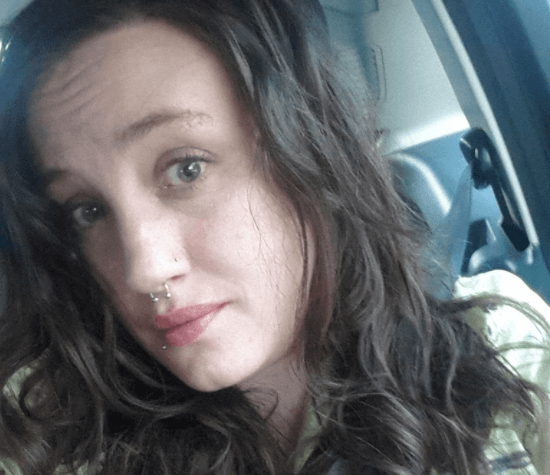
Today is International Women’s Day, so we’d like to say thank you to all the brave women who have shared their experiences with us, including Suzanne, whose story you can read below.
Suzanne Hoddy, member of Money and Mental Health’s Research Community
Recovery space - a personal perspective
Hi there, my name is Suzanne and I’m soon to be 32 (although my new abundance of grey hairs suggest otherwise). I’m writing this blog as I have experienced financial issues relating to my poor mental health.
In 2013, I had a life event that lead to two admissions into a mental health unit. I had never had poor mental health before this. Since then I have been diagnosed with severe depression and anxiety. I had a further third admission last year, where they added PTSD to my diagnosis.
The big red letters
After the second discharge, I got home to nearly three months’ of post. However one letter in particular caught my eye, as it had ‘COURT SUMMONS’ on the envelope in big red letters. While I was in the mental health unit, no one had thought to do a check of my house or post, which meant I hadn’t opened the letter telling me I’d missed one council tax payment. The council didn’t know I was in hospital and so thought I was ignoring them – and ignoring the fees that this outstanding payment was racking up. To try and be positive and not let the first negative experience back at home get to me, I rang the council up straightaway. This is when black and white ‘terms and conditions’ of council tax payments came into play and when, on reflection, Money and Mental Health’s Recovery space would have helped me.
On the phone to my local council regarding the missed council tax payment, I explained I’d never before missed a payment in 11 years, that I had been in hospital, and that no one had opened my mail. But one of the problems I have found with mental health, is that people assume you are fully capable physically. There was no understanding that my poor mental health affected my ability to manage my finances, and the long story short is that I was told I either had to pay a fine of just over £1,000, or I would have to go to court on the date stated on the letter… just three days away. I explained that I’d been in court to give evidence as a victim, which was linked to my poor mental health, but my concerns fell on deaf ears. Due to the black and white policies and procedures, there was nothing in place or any advice they could offer me to help with this situation I’d found myself in.
To say it was frustrating is an understatement. I’m a fiercely independent and stubborn person, but just that one phone call had drained me and I paid the £1,000 fine just to stop the hassle of it.
It could have been different
If Recovery Space was in place, I would have been allowed the time to sort out the issue, pay the outstanding council tax amount when I was well enough, and would not have been met with a £1,000 debt on my return home from hospital. The council would have been alerted to the fact that I was in hospital for my mental health and would have therefore known that I wasn’t ignoring their letters. As you can imagine, having to pay over a thousand pounds on discharge from a mental health unit, while on half sick pay, did my mental health no good.
Talking about my mental health
I have no qualms with being open about my mental health, although I am aware there are still stigmas surrounding it. Even my friends and family would say or suggest stuff with the best intentions, without realising how they were influenced by stigma.
Mental health is an invisible illness. People may also try to hide that they have poor mental health just to avoid the extra stress and stigmas. And I can understand why. However, if you are reading this and recognise your experience, you should be proud, not only of how well you are doing to help yourself with financial issues, but doing this whilst fighting your poor mental health.
Just think, if we could get extra time and help from someone who has knowledge of finances and mental health, I believe the heavy burden and stress a person carries around could be lifted.
Everyone deserves to be treated as an individual and a human being, and I believe Recovery Space will get us one step closer.
